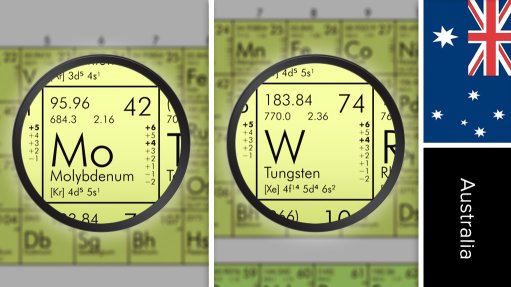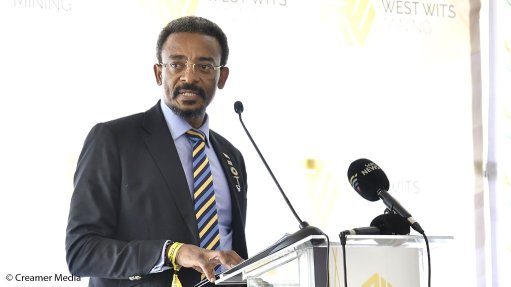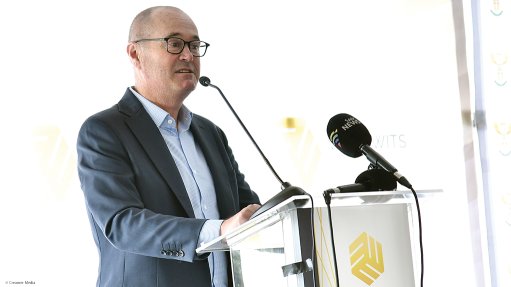S Africa well positioned in green economy shift


WARREN BEECH South Africa’s PGM miners have been good at creating markets for PGMs, even when global demand waned
With the global drive towards the green economy, law firm Beech Veltman tells Mining Weekly that South Africa is ideally positioned to benefit from this global trend.
Owing to its having access to renewable energies and platinum-group metals (PGMs), South Africa can become an exporter of hydrogen, which has significant benefits including financial benefits, employment, the development of technologies and industries, and local beneficiation, explains Beech Veltman CEO Warren Beech.
For example, PGM miners would be able to develop their social and labour plans and Mining Charter compliance strategies with the hydrogen economy in mind.
“South Africa’s PGM miners have been good at creating markets for PGMs, even when global demand waned, they have also anticipated the need for PGMs as part of the move towards the green economy, decarbonisation and energy efficiency.”
PGMs will continue to play a critical role in the green economy and the green hydrogen economy, in terms of electrolysis in the production of hydrogen and the energy conversion using fuel cell technology.
However, Beech explains that the rest of South Africa’s mining industry will need to shift towards decarbonisation and using hydrogen to drive production capacities. This shift will be particularly beneficial in the extraction and hauling of the minerals underground and in opencast workings through the development of technology such as fuel cell electric vehicles (EVs).
South Africa’s mining industry, therefore, has an important role to play, not only in producing PGMs and using them in the hydrogen economy but also as a significant consumer of energy.
The development of South Africa’s renewable-energy potential; however, is constrained for various reasons, the most notable of which is the regulatory framework that has been slow to change, owing to the Covid-19 pandemic, as well as delays by the Mineral Resources and Energy Minister in facilitating quicker renewable-energy-based public and private partnerships, says Beech.
While progress has been slow, there have been positive developments and progress with renewable-energy projects. In the next few years, South Africa could be in a position where clean electricity generation through renewables can be allocated to the production of green hydrogen through the electrolysis process, he adds.
The production of hydrogen through electrolysis and the use of hydrogen to power EVs using fuel cell technology is the most realistic prospect for South Africa’s medium- to long-term energy requirements and the commitment to the decarbonisation of key industries.
“It would not be appropriate to only focus on hydrogen production for immediate and short-term investment. Investment focus must also be on the medium- to long-term development of export capacity through further infrastructure development.”
With progress being made in hydrogen storage and transportability, South Africa will be well positioned to exploit the hydrogen export market, particularly in terms of those countries that are not able to produce hydrogen in the same quantities, or transport and store hydrogen in the same way that South Africa can.
South Africa’s ability to export hydrogen will positively impact on the country’s economy on all levels. This will include local beneficiation, the creation of local industrialised hubs for hydrogen production, export revenues and taxes, and contributing towards the further development of South Africa’s infrastructure such as ports, rail and roads.
However, clear policy and regulatory frameworks must be put in place.
Regulatory Framework
Beech explains that, as with any regulated environment, there must be clear policy. Policies pertaining to clean energies for South Africa date back to 1998, with the most explicit policies being included in the Integrated Resource Plan (IRP). The IRP was always intended to be dynamic, recognising that changes would be required as and when new thinking and technologies arose.
The IRP, most recently amended in 2019, forms an integral part of the implementation and execution of South Af National Development Plan (NDP).
In the NDP, electricity is identified as one of the core elements of decent standards of living. The NDP also envisages that, by 2030, South Africa will have an energy sector that provides reliable and efficient energy services at competitive rates, that is socially equitable, and that is environmentally sustainable through reduced emissions and pollution.
“As a starting point, the IRP 2019 should be amended to specifically include hydrogen and hydrogen technology. While renewable-energy generation of electricity is critical to the production of green hydrogen, clear policy and guidelines should be developed to facilitate the introduction of renewable-energy electricity into the grid, and a separate allocation to green hydrogen production is needed,” explains Beech.
He states that, in addition to clear policy and guidelines, a more coordinated hydrogen strategy is necessary to ensure optimal efficiency of the value chain – from the production of hydrogen to its transportation, storage and use. However, over-regulated frameworks typically hamper growth, development and investment.
“A cooperative approach will definitely be needed between the various government departments, particularly the departments of Mineral Resources and Energy; Trade, Industry and Competition; and Science and Innovation, with a strong focus on optimising the value chain, and the opportunities for growth, development and transformation in South Africa,” Beech concludes.
Article Enquiry
Email Article
Save Article
Feedback
To advertise email advertising@creamermedia.co.za or click here
Press Office
Announcements
What's On
Subscribe to improve your user experience...
Option 1 (equivalent of R125 a month):
Receive a weekly copy of Creamer Media's Engineering News & Mining Weekly magazine
(print copy for those in South Africa and e-magazine for those outside of South Africa)
Receive daily email newsletters
Access to full search results
Access archive of magazine back copies
Access to Projects in Progress
Access to ONE Research Report of your choice in PDF format
Option 2 (equivalent of R375 a month):
All benefits from Option 1
PLUS
Access to Creamer Media's Research Channel Africa for ALL Research Reports, in PDF format, on various industrial and mining sectors
including Electricity; Water; Energy Transition; Hydrogen; Roads, Rail and Ports; Coal; Gold; Platinum; Battery Metals; etc.
Already a subscriber?
Forgotten your password?
Receive weekly copy of Creamer Media's Engineering News & Mining Weekly magazine (print copy for those in South Africa and e-magazine for those outside of South Africa)
➕
Recieve daily email newsletters
➕
Access to full search results
➕
Access archive of magazine back copies
➕
Access to Projects in Progress
➕
Access to ONE Research Report of your choice in PDF format
RESEARCH CHANNEL AFRICA
R4500 (equivalent of R375 a month)
SUBSCRIBEAll benefits from Option 1
➕
Access to Creamer Media's Research Channel Africa for ALL Research Reports on various industrial and mining sectors, in PDF format, including on:
Electricity
➕
Water
➕
Energy Transition
➕
Hydrogen
➕
Roads, Rail and Ports
➕
Coal
➕
Gold
➕
Platinum
➕
Battery Metals
➕
etc.
Receive all benefits from Option 1 or Option 2 delivered to numerous people at your company
➕
Multiple User names and Passwords for simultaneous log-ins
➕
Intranet integration access to all in your organisation



















